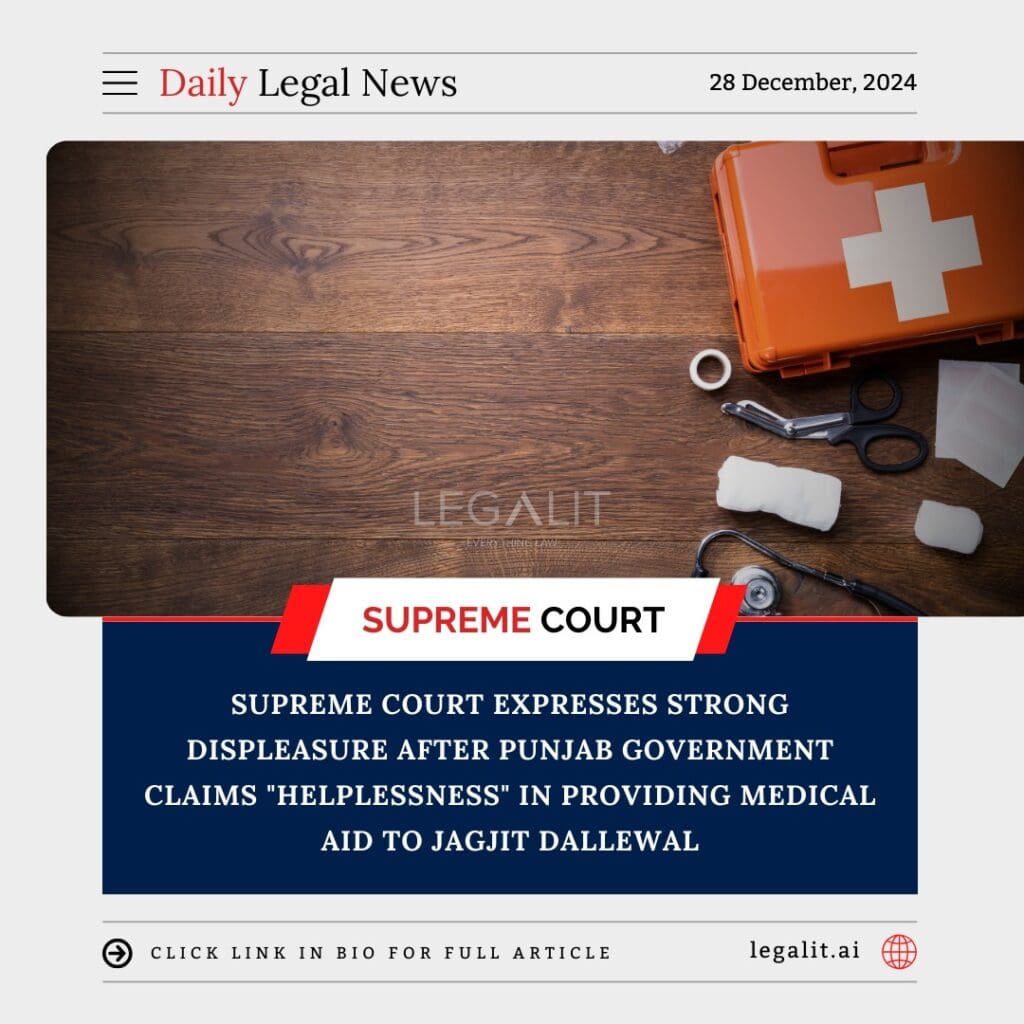
The Supreme Court of India has expressed severe discontent after the Punjab government stated that it was “helpless” in providing medical aid to Jagjit Dallewal, a key figure in the farmer’s protest. The court’s remarks came in response to the state’s inability to offer timely medical assistance, despite the seriousness of the issue.
Background
Jagjit Singh Dallewal, a prominent leader in the farmer’s movement, was reportedly in need of medical care while in custody. The case came before the Supreme Court when it was brought to light that the Punjab government had failed to facilitate proper medical treatment, despite clear directions from the court.
The state’s response to the situation, wherein it claimed to be “helpless,” sparked significant criticism from the bench, which questioned the government’s responsibility in addressing such urgent matters, particularly when it pertains to the health of an individual under its care.
Court’s Criticism
- Government’s Accountability:
The Supreme Court harshly criticized the Punjab government for its apparent inaction. The bench stressed that the state has an obligation to ensure the health and well-being of individuals, especially when they are in state custody. - Delay in Medical Aid:
The court noted the delay in providing the necessary medical care to Dallewal, highlighting that such delays were detrimental to his health and could potentially lead to avoidable consequences. - Lack of Adequate Response:
The bench also remarked on the inadequate explanation provided by the government. The claim of “helplessness” was not deemed a valid reason for failing to act, especially in a situation that could endanger an individual’s life.
Implications
This incident brings to the forefront issues regarding the state’s duty of care towards individuals in its custody. It also highlights the Supreme Court’s firm stance on ensuring timely medical intervention and the government’s responsibility in safeguarding the rights and health of all citizens, especially those in vulnerable situations.
Conclusion
The Supreme Court’s frustration with the Punjab government’s response underscores the critical importance of ensuring the right to health for individuals, regardless of their status or situation. This case serves as a reminder of the government’s duty to act swiftly in providing necessary medical aid to those in need, particularly when court orders have been issued to that effect.